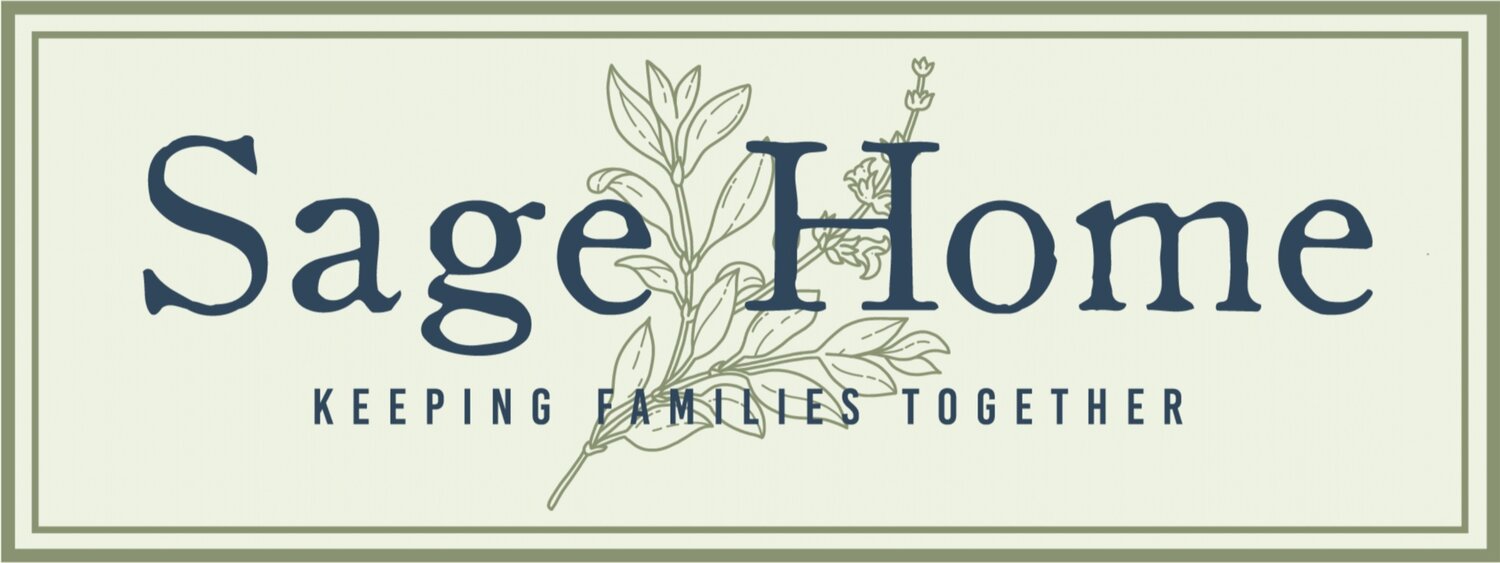Community Matters
by Tessa Reagan-Vilte
Hello! My name is Tessa and I am so excited to write the Sage Home blog this month. Educationally, I have earned a BA in Education with an emphasis in early childhood development. Currently, I am pursuing a Masters of Social Work. While working and interning in a private practice setting, I have the privilege of working with a diverse population of clients. I feel incredibly honored to walk alongside them on their journey to healing. I am also a mother to two little boys through biology and adoption.
The Mission of Sage Home
Through my personal life and adoption training, I have become fiercely passionate about the mission of Sage Home. To be honest, when I first learned about its mission, I had quite a few questions about the effectiveness of Sage Home. Luckily, a close friend of mine previously served on the board and would answer the many questions I had about the program. Over time, I began to realize the benefits Sage Home could offer. This realization has now grown into a strong advocacy for the organization. I hope to share with you my personal experiences in a way that highlights the unique solutions Sage Home will be able to best serve infants and women in Northern Arizona in a safe and healthy way.
The Primal Wound
Through the adoption process I discovered the book The Primal Wound By Nancy Newton Verrier. In the novel, Verrier discusses abandonment:
“Abandonment and loss is indelibly imprinted upon unconscious minds and the biochemistry of those who have been separated from their biological mothers at birth.” - Verrier
The novel invokes established research to propose that bonding doesn't begin after birth but is a continuum of physiological, psychological, and spiritual events beginning in utero and continuing throughout the postnatal bonding period. It is the interruption of this natural evolution due to postpartum separation of mother and child that creates a primal wound.
The primal wound focuses solely on adoption but the underlying theme of the novel is separation of infants from their biological mothers. Separation is traumatic and infants that experience trauma from birth will have life-long effects tracing back to that missed connection and abandonment. However, as a social worker and mother myself, I see undoubtedly the inherent need for infants and children to remain with their mothers. There are currently no systems in place in Northern Arizona that allow mothers to stay with their children in a safe environment while working through addiction.
Substance Exposed Newborns
A large portion of my adoption training involved preparing for a substance exposed infant in the event one ended up in our care. I did some research on how prenatal drug exposure affects infants and was quite surprised. In some cases, the effects of prenatal drug exposure are minimal while in other cases the effects are incredibly scary. Symptoms of withdrawal may begin as early as 24 to 48 hours after birth and can include rapid heart rate, tremors, irritability, and seizures, among other symptoms. Prenatal drug exposure also increases the likelihood that an infant will be born premature. This most certainly will lead to a longer hospital stay for the baby. A NICU stay for a substance exposed newborn can range from 13 days to 6 months.
Community: Before and After
Both of my children were born premature. The only way my family survived the NICU was by having a community surrounding us. My first child was born before COVID and we had frequent visitors and advocates for our family. My second child was born during COVID and we were supported from afar with meals, coffees, and great therapists to help us process our experience. After my second child was born I had a moment where I realized “This is the answer.” Our community is what equipped us to be able to handle this.
Our Community
Community. To me that is the missing piece. It is how we can prevent the trauma of abandonment that substance exposed newborns experience while being kept safe as their mothers are in recovery. How do we keep women and infants together while empowering women through arguably the most challenging stage in parenting, infancy? We walk alongside them. Sage Home not only hopes to provide the best care for babies and moms, but they also hope to cultivate a community that will support these families well past the time they spend at Sage Home.
“Being part of a community gives us a sense of belonging. It enables us to share personal relatedness and support perpetual growth of each other, ourselves and our environment.”
Sage Home is unique in many ways but I think a pillar of their undoubted success will be the sense of community they have created as a foundational principle of their organization. We are honored to help families stay together in Northern Arizona.
We believe that families should be able to safely stay together on their path to sobriety.
You can help us keep families together so that no child has to be separated from their family, and no mother separated from their child.
Are you with us?
